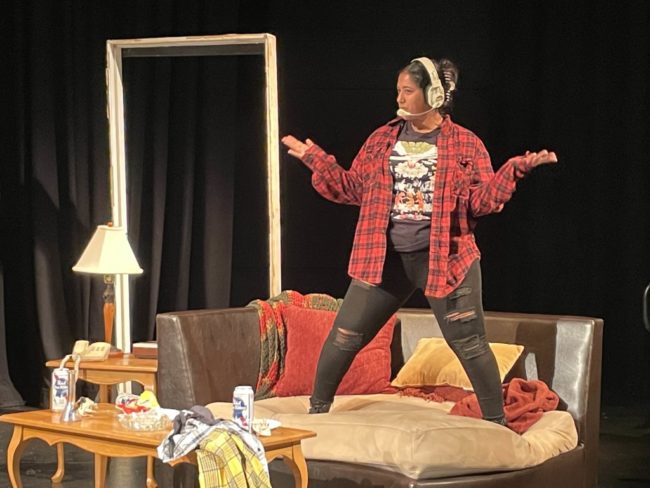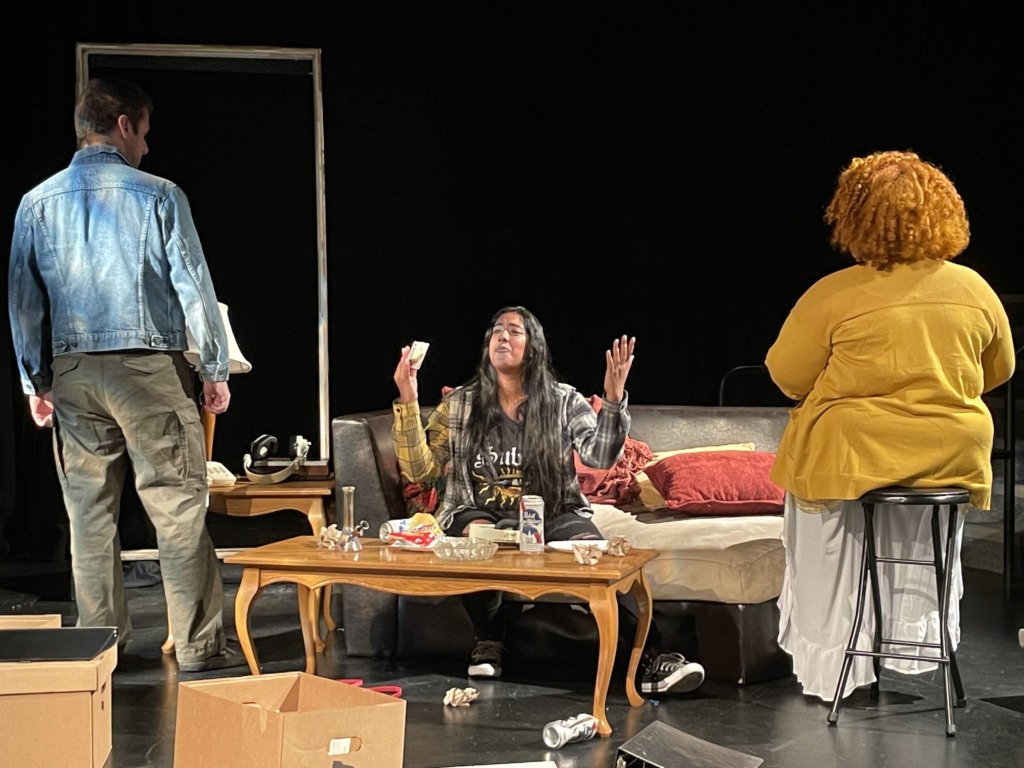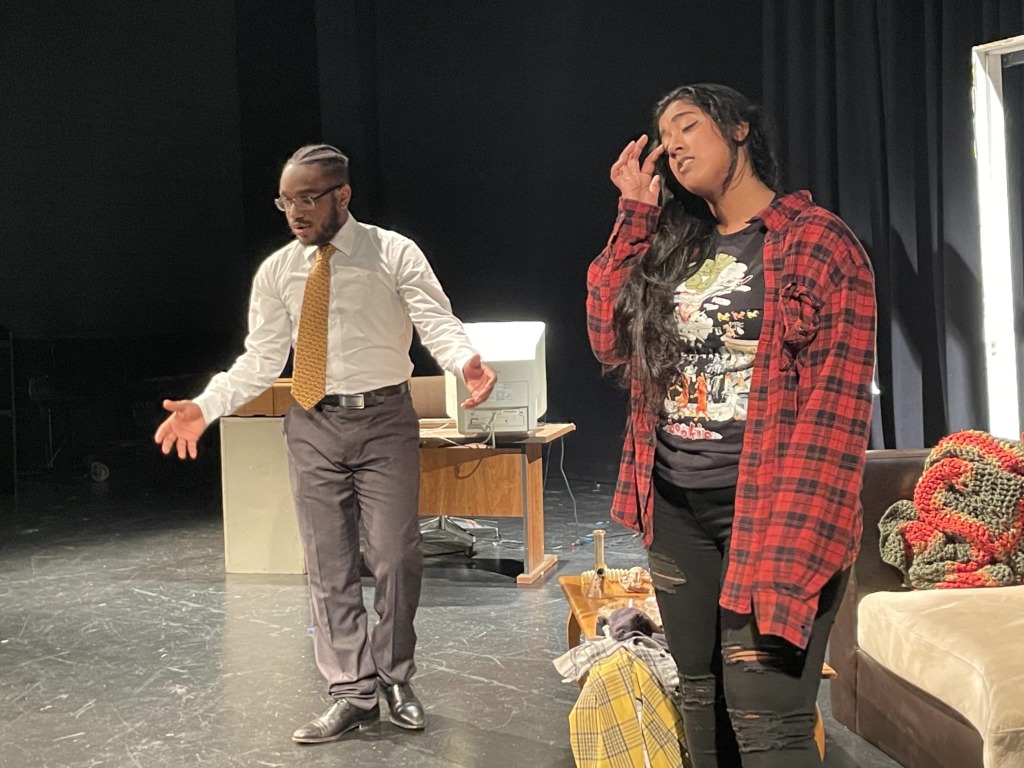This is the IRS. If you do not give us your social security number, your overdue back-tax payments will force you to become arrested. This is your boss. I need you to buy ten $500 Amazon gift cards— send them straight away and keep the receipt. I’ll reimburse you when you get back to the office. The Prince of Nigeria has named you his successor. You stand to inherit $74,263,879 but a nominal wire transfer fee of $250 as well as your bank account and routing number are required to complete this transaction.

Sounds bogus, right? Sounds impossibly stupid to fall for. Sounds like anyone with half a brain would know to hang up. Or ignore the message. Or not click the link in the email. Right? Unfortunately, particularly with the elderly— that’s not always the case. Dial it back it back now, y’all. Think mid 1990’s when ‘telemarketers’ worked out of their own apartments with headsets and big chunky databases stored inside their old Dell computers complete with CPU towers and dial-up modems. That’ll put you in the headspace for Truest Ethos Theatre Company’s first production, Scam Artist, a one-act play written by Co-Founder Marshall Logan Gibbs.
The play itself delves into the life of a particular scam artist, Bobbi, who is pretty good at what she does, despite the immorality of it all on top of her other questionable life decisions. It’s a fast-paced, surface exploration of the classic trope that ‘actions have consequences’ even and especially when you think they don’t. Directed by Gibbs, with a cast of four on stage, working their way through this intriguing drama, there’s a lot to be said for this new work being featured by this new company.
As the playwright, Gibbs does a great job of creating characters who are relatable, human despite their flaws, and fully fleshed out, often a tall order for a short-script or a one-act. At times the character of Bobbi (played exceptionally by Randi Seepersad) has a bit of a one-note heightened-expressive ceiling. The character hits these screaming extremes so often and so quickly that it occasionally makes her hard to understand. Chalk it up to the acoustics of the space, the overly zealous enthusiasm of the performer, and the director being intimately entangled in his own work. But where Gibbs succeeds with Bobbi is in her disconnected approach to reality. He masterfully presents the concept of ‘victimless crime’ (even though scam artistry is 100% a victim-ed crime) in Bobbi’s attitude and overall expressions. Gibbs’ strongest character is observed in the strait-laced lawyer brother character of Richard (played superbly by Broadus Nesbitt.) You immediately get the sense that the Richard character is the grounding focal point for reason, conscience, and morality in this production. He almost reads like a polished and highly educated Jiminy Cricket, without the whistling.

Gibbs has also fully developed an intricate backstory for a character who only appears in a ‘dream sequence’ which is fully explored by Richard during a monologue scene. The craftwork of Gibbs’ characters are impressive, and although the ending feels a little false in the way it cheats the protagonist out of all the built-up self-discovery that she ultimately unearths, it is very clear that he, as a playwright, understands how to drive a story forward, create believable characters and situations, and keep the audience engaged with these elements during the storytelling narrative of his work.
One does question, however, why Gibbs chose the 90’s as the setting for the play. There are a few little anachronisms here and there, a couple of things that arise sounding as if they were the forced by-product of research about the era, and a few, albeit very minor, things that are just out of sorts for the era in which he’s chosen to set the play. Scam Artistry by phone became popular in the 90’s, particularly when it comes to scamming the elderly, certainly. But this is also a real, predatory threat still happening with the elderly today and the play could have just as easily been shifted forward into modern times in a way that wouldn’t effect the overall message or characterization of the work, and might even give the overall experience a bump of credibility.

Technical Director Christina Panousos provides lighting and sound effects and contributes to the cast/tech wide effort of crafting the set. The overall aesthetic is simple enough to be anyone’s apartment at any time during the 90’s anywhere that isn’t the backwoods of nowhere. There’s a dial-up modem sound effect that comes heavily into play (there’s a disagreement between this critic and the production team over whether or not that reads as the sound effect they’re going for…as a teen of the 90’s that sound effect has very specific connotations for my generation, but I digress…) and while nostalgic doesn’t always exist in a progressive fashion for the production. The lighting curtails to the “soliloquy-based-nature” of some of the monologues; most of those moments blur the lines between the fourth wall and it’s never quite clear— though in an intriguing and interesting way— if we the audience are merely watching this play or actively, albeit in the periphery, a part of it.
The performances are solid across the board. There doesn’t feel like there is a weak link among the four, which is an impressive feat considering how small the cast is. Darian Grade, who appears only briefly on stage (outfitted to perfection in the lemonade color scheme of her character’s moniker) is loving and kind and has a bunch of brilliant facial expressions that really carry the intent of her character to the audience. Jake Devries, as the strung-out-not-boyfriend character is that hapless, feckless, irritant that you just sort of tolerate because he’s there. Devries does a fine job of embodying that “don’t care” attitude when it comes to— literally everything he says and does.

As previously mentioned, both Randi Seepersad and Broadus Nesbitt give steller performances with their two leading characters. Seepersad runs the gamut of emotions all throughout the performance, particularly when she’s starting to breakdown near the conclusion of the story. Nesbitt is so deeply invested in his eulogy monologue that you’d almost believe the person he was speaking about was his own family. (And a double-shout out to Nesbitt for his mad improv-skills, covering a technical error in the performance and managing to convince the audience that his near ‘bust-a-gut-laughter’ was actually a man so deeply bereaved that he’s all but breaking down into tears while trying to maintain his composure.) Both Nesbitt and Seepersad play exceptionally well together, with her off-the-rails character snapping hard at his poised and refined pillar of upstanding strength. The pair could genuinely be related (they play brother and sister characters) and it reads with such authenticity that you feel truly drawn into their history even though you’re only exposed to them in the present moment of the play.
An intriguing experience (it always feels wrong to call something dark and twisted enjoyable), both well performed and well-staged in addition to being tightly executed and smartly paced. There are only two performances of Scam Artist and they are both well worth seeing. Keep an eye on the Truest Ethos Theatre Company page to see what’s coming up next for this brand new company.
Running Time: Approximately 60 minutes with no intermission
Scam Artist, a Truest Ethos Theatre Company production, plays August 26th & August 27th 2022 in the Black Box Theatre of the Chesapeake Arts Center— 194 Hammond Lane in the Brooklyn Park neighborhood of Baltimore, MD. Tickets are available for purchase at the door or in advance online.
Click here to read the interview with Co-Founders Marshall Logan Gibbs and Maxwell Wolf about the starting of Truest Ethos Theatre Company.
